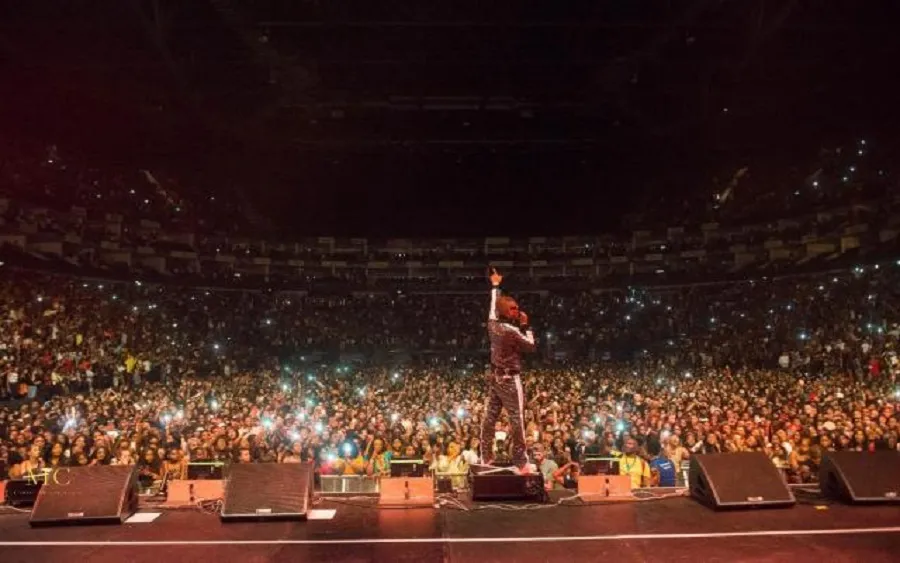For years, December in Nigeria especially in Lagos has been more than a month. It’s a season, an attitude, and a reunion of sorts. “Detty December” became a global term, a cultural calendar that turned Nigeria’s nightlife into a homecoming pilgrimage for the diaspora and a celebration for locals who made it through another chaotic year. But in 2025, the spirit feels different. The parties are still there, the artists are still performing, but something has shifted: the prices. And for the first time in years, the streets are beginning to whisper that the fun might no longer be worth the cost.
The hype around Detty December started as an organic wave a youth movement powered by music, spontaneity, and social connection. What began with pop-up concerts and street raves in places like Victoria Island and Lekki became an international attraction. Nigerians abroad booked flights home months in advance. Brands and promoters seized the opportunity, transforming the season into a commercial ecosystem worth billion. But that same commercialization now threatens the very energy that made Detty December special.
Ticket prices for top events in 2025 have reached record highs. A single-day festival pass that used to cost ₦10,000 now goes for ₦45,000 or more. Table bookings have entered absurd territory millions of naira for access to “VIP” spaces that often feel identical to general admission. Even mid-tier events, which once catered to everyday Lagosian, have doubled or tripled in price. For many, Detty December has become a luxury rather than a lifestyle.
The economic backdrop makes this shift even sharper. Inflation, currency devaluation, and the rising cost of living have eroded disposable income. The average Nigerian youth, already navigating a tough year financially, finds it harder to justify spending ₦100,000 on a single night out. As one attendee put it on X: “Last year I went to five shows. This year, I’ll probably do one. It’s not that I don’t love the music, it’s just math.”
Event promoters defend the pricing, citing increased operational costs. Venues, security, artist fees, and logistics have all become more expensive. Many artists, now operating on global schedules, demand international-standard payments to perform at home. Add to that the pressure of marketing, influencer partnerships, and brand sponsorship requirements, and the price trickles down to the consumer. From a business perspective, promoters argue that they’re not gouging they’re surviving. But from the audience’s perspective, the joy feels priced out.
The result is a subtle but visible decline in turnout. Social media feeds that once overflowed with concert clips now show more nostalgia than excitement. People talk about “the old Detty December” when street parties, rooftop shows, and spontaneous events felt communal. In contrast, today’s high-end events often feel exclusionary, built for social media optics rather than shared experience. Attendance may look full in photos, but the cultural energy the collective spirit that once defined December in Lagos feels thinner.
The rise in cost has also fragmented the scene. Smaller, independent organizers are struggling to compete with corporate-backed giants that can afford to book top-tier artists and flood the market with flashy campaigns. The few affordable events left often rely on brand sponsorships that dictate creative direction, leaving little room for authenticity. The balance between access and aspiration the magic of Detty December has been replaced by hierarchy and exclusivity.
The irony is that the overpricing runs counter to Afrobeats’ very DNA. The genre, which fuels much of December’s energy, was born from accessibility from the streets, from shared experiences, from the dance floors that never needed velvet ropes. Afrobeats’ rise made Lagos the world’s unofficial party capital, but the same success has now turned the scene into a gated experience. The average fan who streams Burna Boy, Davido, or Asake religiously might no longer afford to see them live in their own city.
For diaspora Nigerians returning home, the cost doesn’t hit as hard. To them, ₦45,000 for a concert still feels reasonable compared to U.S. or U.K. ticket prices. But for locals, the disparity reinforces an uncomfortable divide. Detty December, once a unifying moment across classes and backgrounds, is starting to mirror the inequality that defines the rest of Nigerian life. The streets feel it; the local fans feel it. The city’s festive pulse is quieter, its inclusivity dimmer.
Interestingly, the backlash is already reshaping behavior. Many young Nigerians are choosing alternatives: house parties, intimate gigs, or smaller “underground” concerts hosted by independent collectives. These spaces, though modest, carry the spirit of the old Detty December community-driven, raw, and affordable. They’re less about celebrity lineups and more about connection. If 2024 was about exclusivity, 2025 might be the year of the grassroots comeback.
Culturally, this shift poses a question bigger than ticket prices: what happens when joy becomes unaffordable? Detty December has always been more than entertainment; it’s been a statement of resilience. In a country that often feels heavy, the month represents collective relief, a time to dance away frustration and find laughter again. But if that joy becomes limited to those who can afford it, its cultural purpose fades.
The economics of entertainment are complicated organizers must survive, artists must be paid, and inflation spares no one. Yet, the Detty December brand depends not just on profit but on perception. When fans begin to feel excluded, enthusiasm declines, and once-legendary events start to lose their cultural edge. No amount of marketing can recreate the authenticity that pricing drives away.
As the season approaches, Lagos will still light up with music, lights, and energy. But behind the sparkle lies a quieter truth: the city’s party economy is at a crossroads. If pricing continues to climb unchecked, the very heartbeat of Detty December may shift from shared joy to selective access. The question is whether organizers and artists will find a way to recalibrate restoring balance between business and belonging. Because the real currency of Detty December was never naira; it was connection.


Leave a Reply